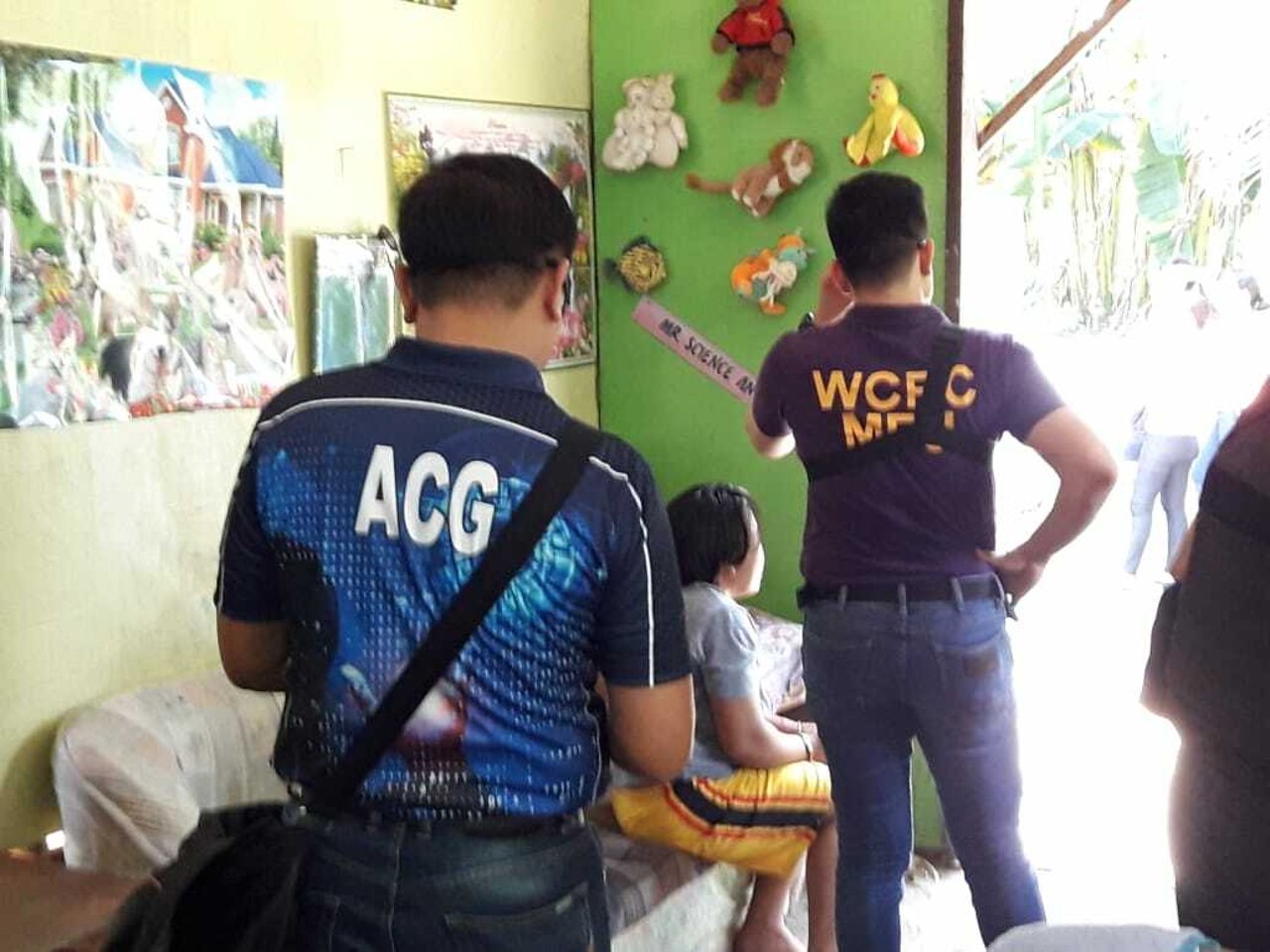MEDIA RELEASE: Police arrest online trafficker who sold child abuse material to Australian paedophile

DAVAO DEL NORTE, THE PHILIPPINES – Law enforcers’ relentless pursuit to protect children led to the arrest of an online trafficker who distributed to an Australian paedophile, through the internet, sexual exploitation materials involving her two young sons.
Connie*, 35, was arrested during an entrapment operation jointly done by the Philippine National Police’s (PNP) Women and Children Protection Center – Mindanao Field Unit (WCPC-VFU) and the Regional Anti-Cybercrime Unit (RACU) 11 (Davao Region) around 11:30 a.m. on Thursday 18 July 2019.
She was arrested at her residence in Carmen, Davao del Norte after she sent photos of her 4-year-old son being sexually abused through an online messaging platform in exchange for money. The boy was rescued at the house, while his 11-year-old brother was rescued less than an hour later in a separate location.
Sometime in May this year, representatives from the Department of Justice’s Inter-Agency Council Against Trafficking (DOJ - IACAT) – Davao Region coordinated with WCPC-MFU after learning about a cybersex trafficking case that the Australian Federal Police (AFP) previously referred to PNP.
Connie’s two sons were shown in images deemed to be child sexual exploitation materials found on a mobile phone owned by a male Australian sex offender during a home visit inspection by New South Wales Police on 15 December 2015. He was placed under arrest on 9 February 2016.
Forensic analysis of his phone revealed that Connie had communicated with the Australian perpetrator.
The two boys are now in the care of the Department of Social Welfare and Development (DSWD), receiving trauma-informed interventions.
A child abuse image was also found on Connie’s computer device during Thursday’s operation. Col. Christine Tan, chief of WCPC-MFU, led the implementation of a search warrant issued by Judge Retrina Fuentes of the Regional Trial Court Branch 10. WCPC-MFU and RACU 11 personnel searched and examined the suspect's electronic devices in the presence of barangay (local council) officials.
The suspect’s electronic devices will undergo further examination in a forensic laboratory.
“Our successful operation today again highlights what international collaboration can do to protect our children,” said Col. Tan. “We thank our counterparts in Australia for promptly alerting Philippine authorities when they discovered this abuse perpetrated by their own citizen. [emphasis added] We also thank IACAT-Davao Region for their proactive efforts to protect children from exploitation. To those who still exploit our children online, you will soon pay for your crime.”
Deputy Regional Prosecutor Barbara Mae Flores shared, “The crime of online sexual exploitation of children (OSEC) is hard to detect because the technology allows the perpetrators to be anonymous. But since the investigation of this crime shifted its emphasis to international cooperation, to constantly upgrading the technical and practical skills and knowledge of our law enforcers, and conducting joint operations among the different stakeholders, perpetrators are no longer untouchable.”
Today’s arrest of an online trafficker and the rescue of her two sons “are manifestations of how effective the foregoing efforts are in combatting this reprehensible crime,” added Flores, who serves as chief of operations of the DOJ – IACAT – Regional Anti-Trafficking Task Force in Davao Region, which supported the operation.
Col. Noel Espinoza, chief of RACU 11, said the successful operation was the result of a good collaboration among law enforcement agencies and other concerned organisations.
“In line with our anti-cybercrime awareness campaign, we encourage everyone in the community to support PNP’s program to prevent illegal activities like OSEC, especially with social media now being used as a tool to commit crimes such as child abuse and human trafficking,” he said.
He added that RACU 11 will continue to carry out its mandate and institute initiatives and best practices to improve their services to the community.
Also supporting today’s operation were the Davao del Norte Provincial Police Office, Carmen Municipal Police Station, DSWD 11, and International Justice Mission.
Cybersex trafficking, also known as online sexual exploitation of children (OSEC) is a crime that violates the Anti-Trafficking in Persons Act or Republic Act (RA) No. 9208 (as amended by RA 10364), which comes with a maximum penalty of life imprisonment and a fine of two (2) million to five (5) million pesos. Typical OSEC offenses also violate RA 10175 (Cybercrime Prevention Act of 2012), RA 9775 (Anti‐Child Pornography Act of 2009) and RA 7610 (Child Abuse Law). Each of these violations have penalties equivalent to 12 to 40 years imprisonment.
All new cybersex trafficking referrals are directed to the Philippine Internet Crimes Against Children Centre (PICACC) which opened in February 2019. The PICACC is a collective effort to combat child exploitation across the Philippines by law enforcement – the PNP, the National Bureau of Investigation, the Australian Federal Police, and the United Kingdom National Crime Agency; in partnership with non-government organisation, International Justice Mission (IJM). This collaborative international effort protects children through an enhanced global response to combatting cybersex trafficking.
###
WCPC-MFU Chief Christine Tan talks to the suspect.
WCPC-MFU and Anti-Cybercrime Group (through RACU 11) personnel in the living room of the suspect’s house. (Please credit International Justice Mission)
Social workers carry the 4-year-old victim (covered in shawl).
Download this media release as a PDF.
For media enquiries, contact:
Bianca Bryson
[email protected]
0478 219 171
INTERNATIONAL JUSTICE MISSION is a global organisation that protects the poor from violence throughout the developing world. IJM partners with local authorities to rescue victims of violence, bring criminals to justice, restore survivors and strengthen justice systems.
For more information, visit IJM.org.au.